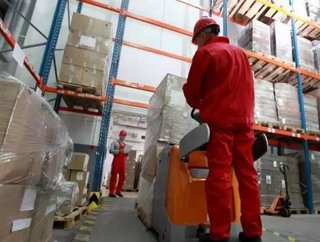The supply chain challenges in South East Asia have reached a turning point

In the light of economic growth, rising affluence and booming consumer demand, many international businesses are seeking to capitalise on the growth in South East Asia’s developing markets. The supply chain challenges in South East Asia have reached a turning point owing to the scarcity of supply chain professionals, increased consumer diversity and fragmented supply chains.
The many layers of suppliers, localised delivery and route to consumer practices, and lack of transparency and consistency in information flows make it incredibly difficult for businesses to achieve the next wave of global growth. There is huge promise but transforming supply chains to reach market potential, handle diversified products, and provide outstanding quality and service to customers is a mammoth task. The businesses best able to overcome these challenges can transform their South East Asian supply chains to become a source of competitive advantage and drive global growth.
With rising labour costs and the move away from an export-based economy, the changes in China are creating opportunities for South East Asia in global manufacturing. This also positions global businesses to capitalise on growing demand in these markets. For most companies the potential is clear; the challenge is how to address it.
South East Asia is an incredibly attractive region with rapidly growing markets and low cost operations. The challenge is how to address fractured supply chains and the shortage of supply chain skills. As companies move their factories from China to South East Asia, they should grasp the opportunity to carry out a full supply chain review to identify how they should configure their supply chains to better deliver on their current and future business strategies. Due to the significant costs involved in the transformation, businesses need to assess the real benefits and ensure it will deliver against objectives.
Companies can accelerate their supply chain transformation by bringing best practice from elsewhere in their organisation, other industries and innovative local supply chain practices. Through understanding their businesses’ maturity and readiness to change they can identify where sustainable improvements can be made and how to leverage disruptive technologies to drive business performance.
There remain a number of challenges to this, not least high staff turnover as employees are quick to leave for even marginally higher wages. These nations are also relatively young in terms of their manufacturing history with limited supply chain knowledge and a lack of experienced professionals in manufacturing, distribution, planning and supply chain management.
To ensure a successful transformation, knowledge and awareness of local culture and business landscapes is critical, with a long term focus on developing local supply chain knowledge and people capabilities. To capture the full potential in South East Asia, it is best to establish a physical presence and subsequently localise knowledge and skills by, for example, setting up R&D centers or developing region specific leadership and training programmes.
Richard Smith, is Director of Crimson & Co Singapore
Supply Chain Digital's June issue is now live.
Follow @SupplyChainD and @MrNLon on Twitter.
Supply Chain Digital is also on Facebook.






